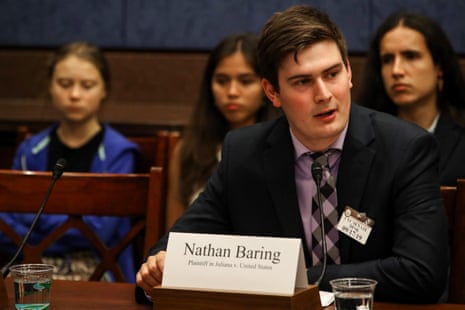
Nathan Baring, a third-generation Alaskan and climate activist, serves as a plaintiff in Juliana v United States, a lawsuit filed by 21 young Americans accusing the US government of "willfully ignoring" the risks of burning fossil fuels. The lawsuit argues that this negligence violated the plaintiffs’ constitutional rights to life, liberty, property, and failed to safeguard public trust resources. Success in the case could lead to a declaration that the nation’s pro-fossil fuel policies are unconstitutional, potentially prompting policy changes.
Initiated in 2015, the lawsuit faced challenges, including a 2020 dismissal by a US court of appeals. In June, a federal judge in Oregon ruled that the lawsuit could proceed to trial. Baring discussed the Montana ruling, the Juliana case, and the status of youth-led climate suits in an interview with The Guardian.
How did you become aware of the climate crisis?
Growing up in Alaska, Baring witnessed significant changes within his lifetime, from extreme cold periods to milder, wetter conditions. Engaging in Nordic skiing, he observed the ongoing melting of permafrost. Baring's climate activism began at 12 when he wrote a letter addressing Fairbanks' winter air pollution due to wood-burning stoves. His involvement expanded through organizations like Alaska Youth for Environmental Action, focusing on state-level issues such as sustainable fisheries.
What is it like being the only Juliana plaintiff from Alaska?
Baring highlighted his background in organizations led by Indigenous organizers, emphasizing land sovereignty and climate justice. While unique in the broader climate movement, Juliana includes several Indigenous plaintiffs. Baring also emphasized his focus on labor justice, considering Alaska's heavy reliance on the oil industry, which holds a significant influence on state politics.
What are your thoughts on the recent Montana victory in youth climate suits?
Baring expressed excitement for the plaintiffs in the Montana case, recognizing their historic achievement. Acknowledging Alaska's and Montana's similarities as fossil fuel-rich states, he emphasized the need to support such states in transitioning away from fossil fuels. Baring emphasized the importance of providing a vision for a future without oil, addressing the fear-based responses associated with the industry.
